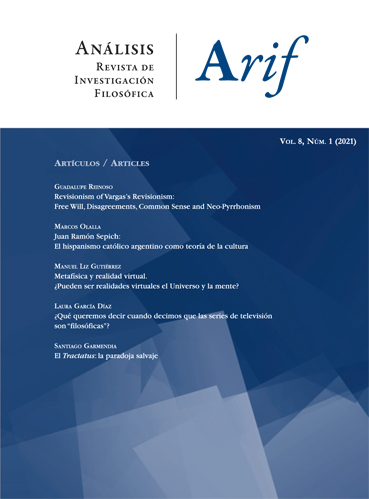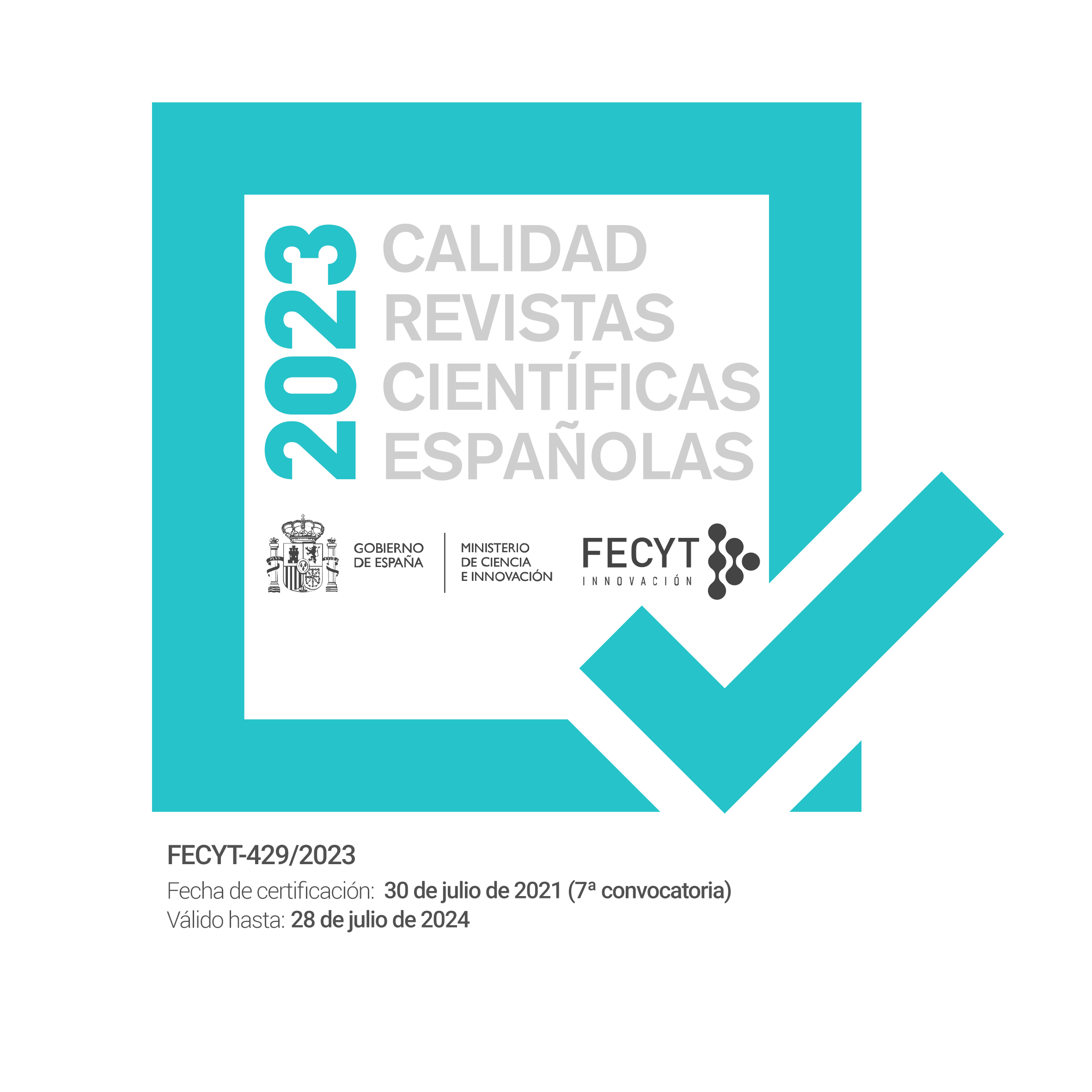Revisionism of Vargas’ revisionism: Free will, Disagreements, Common Sense from Neo-Pyrrhonism
DOI:
https://doi.org/10.26754/ojs_arif/arif.202115352Abstract
From an overview of philosophy, it can be said all issues are controversial. An example of this kind of never-ending controversy is the free will debate. The originality of Revisionism proposed by Vargas (2007, 2013) is to establish a position within the debate after having reviewed the terms in which it is discussed. His Revisionism focuses on reviewing how the different philosophical positions of the debate are linked to the intuitions or preconception of common sense. Vargas argues that common sense –as a preconception- has incompatibilistic elements that ought to be accepted when making a diagnosis. However, at a prescriptive level, the theory that ought to be adopted in philosophy is compatibilism. Thereby, Vargas proposes a hybrid Revisionism.
By reading Wittgenstein from a neo-Pyrrhonic orientation, I propose to reconsider the role of disagreement in the philosophical debate and the approach to common sense in order to argue that it is a plural set of practices rather than a preconception. These practices determine different contexts for the use of concepts, in which both deterministic and indeterministic positions can make sense. This pluralistic view of common sense also modifies the place of philosophy and the kind of disagreement faced in the debate.
Downloads
Downloads
Published
Versions
- 2021-07-12 (4)
- 2021-07-12 (3)
- 2021-07-12 (2)
- 2021-07-12 (1)
How to Cite
Issue
Section
License
Copyright (c) 2021 Guadalupe Reinoso

This work is licensed under a Creative Commons Attribution-NonCommercial-NoDerivatives 4.0 International License.
Los autores que publican en esta revista están de acuerdo con los siguientes términos: los autores conservan los derechos de autor y garantizan a la revista el derecho de ser la primera publicación del trabajo al igual que licenciado bajo una Creative Commons Reconocimiento-No Comercial-Sin Obra Derivada 4.0 (CC BY-NC-ND) que permite a otros compartir el trabajo con un reconocimiento de la autoría del trabajo y la publicación inicial en esta revista. Los autores pueden establecer por separado acuerdos adicionales para la distribución no exclusiva de la versión de la obra publicada en la revista (por ejemplo, situarlo en un repositorio institucional o publicarlo en un libro), con un reconocimiento de su publicación inicial en esta revista.






